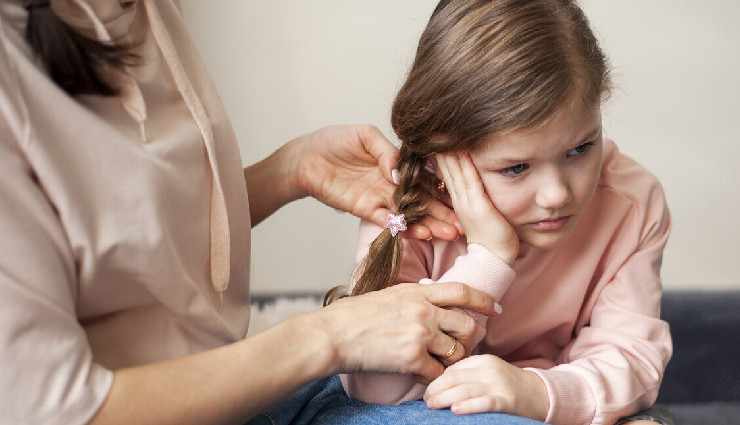- Home›
- Mates & Me›
- 8 Most Common Causes Of Behavior Problems In Kids
8 Most Common Causes Of Behavior Problems In Kids
By: Priyanka Maheshwari Thu, 21 Nov 2024 1:03:44

Behavior problems in children are a common concern for parents, educators, and caregivers. These problems often manifest as difficulties in managing emotions, following rules, or interacting positively with others. While occasional misbehavior is a normal part of growing up, persistent or disruptive patterns may indicate underlying issues.
Children’s behavior is influenced by a combination of biological, emotional, social, and environmental factors. Developmental changes, stress, peer relationships, or unmet needs can contribute to challenges such as defiance, aggression, tantrums, or withdrawal. Recognizing these behaviors early and understanding their causes is essential for fostering healthy emotional and social development.
Addressing behavior problems requires a compassionate and holistic approach. By identifying triggers, providing consistent guidance, and seeking professional support when needed, caregivers can help children learn appropriate coping mechanisms and thrive in their environments. With patience and understanding, most behavior problems can be effectively managed, paving the way for positive growth and relationships.
Behavior problems in kids can stem from a variety of factors, often related to their physical, emotional, social, or developmental well-being. Here are some common causes:

# Developmental Factors
Age-appropriate behavior: Young children often exhibit tantrums, defiance, or impulsiveness as part of their normal development.
Delayed milestones: Developmental delays in areas like speech, motor skills, or social skills can cause frustration and behavioral issues.
# Emotional Factors
Anxiety or stress: Changes like moving, a new sibling, or starting school can cause behavioral changes.
Low self-esteem: Feeling inadequate or not meeting expectations can lead to acting out.
Trauma: Experiencing loss, abuse, or neglect can manifest as aggression or withdrawal.

# Environmental Factors
Family dynamics: Frequent arguments, lack of discipline, or over-permissiveness at home can contribute to problems.
Peer influences: Negative peer pressure or bullying can lead to behavioral changes.
Inconsistent routines: Unpredictable schedules or lack of structure can make kids act out.
# Health and Physical Factors
Lack of sleep: Fatigue can lead to irritability and difficulty in managing emotions.
Poor diet: Sugar crashes or lack of essential nutrients can affect mood and behavior.
Chronic illnesses: Conditions like asthma or allergies may lead to frustration and mood changes.
# Learning and Academic Challenges
Learning disorders: Struggles with reading, writing, or math can lead to frustration and acting out.
Attention difficulties: Conditions like ADHD often result in impulsivity, hyperactivity, or inattentiveness.

# Mental Health Issues
Depression: Kids may exhibit sadness, irritability, or aggression as signs of depression.
Autism spectrum disorders: Difficulty in communication and social interaction can lead to behavior problems.
# Screen Time and Media Influence
Excessive screen time: Overuse of gadgets can lead to reduced attention spans and increased irritability.
Exposure to inappropriate content: Watching violence or age-inappropriate material can influence negative behavior.
# Lack of Positive Reinforcement
Neglect of good behavior: Not acknowledging or rewarding positive actions may make kids seek attention through negative behavior.
Tips for Addressing Behavior Problems:
- Maintain consistent routines and rules.
- Communicate openly about feelings and concerns.
- Encourage positive behavior through rewards and praise.
- Seek professional help if behavior persists or worsens.





